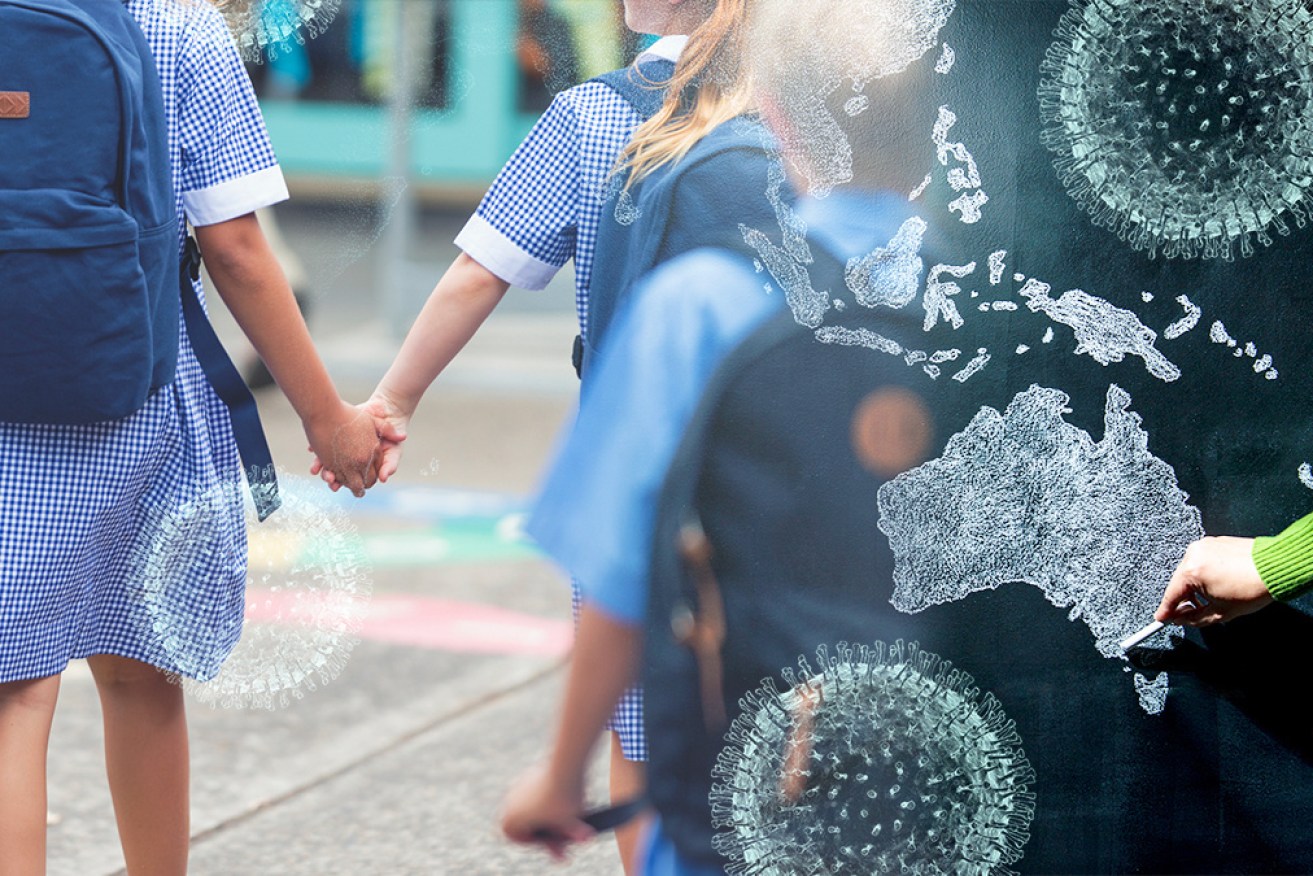Children could be carriers of COVID-19 without even knowing it


Schools in Victoria will not longer send alerts to parents when students are infected with COVID-19. Photo: Getty/TND
As the coronavirus spreads across the globe, Australians stockpile toilet paper and doctors run out of masks, parents are naturally worrying about what it could all mean for their kids.
In Italy, authorities announced on Thursday morning (Australian time) that schools would be shut as the country tries to contain the rapid spread.
None of the protective measures go that far in Australia – so far. But public health experts do have a warning: Children could be unknowingly spreading the novel coronavirus COVID-19 without showing any major symptoms.
So far, not one child under the age of 10 has died from the killer virus – not even in China where the outbreak first began.
Of more than 44,000 confirmed cases from China, only 416 (less than one per cent) were aged nine years or younger.
In Australia, only one child has so far had confirmed COVID-19 infection.
That’s unusual for a widespread sickness, with the usual expectation that children and the elderly would be among the most vulnerable. But although it’s too early to tell how exactly the virus is affecting children, infectious disease specialists have confirmed it could be stealthily travelling through them without detection.
Associate Professor Ian Mackay, a virologist at the University of Queensland, said respiratory viruses were already easily spread from children to their families and throughout schools.
“Children could be a source of transmission,” Associate Professor Mackay told The New Daily.
“Nothing is stopping them from getting infected, but they don’t seem to be getting as ill.”
However, he also stressed there were too many unknowns about the behaviour of COVID-19 to confirm if that’s happening just yet.
“On the other hand, because they’re not getting as ill they aren’t coughing and sneezing as much, they may not have much of a role in transmission,” Associate Professor Mackay said.
He added the low number of sick children could be due to their “naive immune system”, whereas adults who have experienced coronavirus infections during their lives might experience a supercharged immune reaction.
Fatality rates by age for 44,772 confirmed cases in China
1-9 0%
10-19 0.2%
20-29 0.2%
30-39 0.2%
40-49 0.4%
50-59 1.3%
60-69 3.6%
70–79 8%
80 + 14.8%
Source: China CDC— Shane Oliver (@ShaneOliverAMP) March 4, 2020
What should schools do about it?
So far, the New South Wales and Western Australian state governments have introduced a ban on all overseas school excursions until further notice.
That means no school camps or study courses outside of Australia.
The Victorian, South Australian and Queensland governments haven’t followed suit just yet, but will assess international trips on a case-by-case basis.
Queensland Education Minister Grace Grace confirmed to The New Daily she was aware of some schools changing or postponing overseas travel plans due to COVID-19.
“At this stage no blanket ban has been imposed with regards to overseas school excursions,” Minister Grace told The New Daily.
“Should the advice change to warrant a blanket ban, we will act accordingly.”
If the coronavirus outbreak begins to spread rapidly throughout Australia, schools could be temporarily shut down.
If that happens, classes will most likely be moved online.
But before we panic and close schools across the country, Associate Professor Mackay said we first needed to find out what role children played in spreading the virus.
“Shutting down schools would be a huge disruption to the whole community,” Associate Professor Mackay said.
“Parents would need to take time out of work to look after their kids, and that would hurt the economy.
“It would be a whole lot of waste if children don’t actually transmit (the virus) well.”
Tips for parents
Show your children how to wash their hands properly, and remind them to do it regularly during the day.
That’s the advice from Associate Professor Asha Bowen, a paediatric infectious diseases specialist at Perth Children’s Hospital and infectious diseases researcher at the Telethon Kids Institute.
“There have been cases of children who appear to be asymptomatic who have infected other people,” Associate Professor Bowen told The New Daily.
“Simple hygiene measures remain our best strategy – that’s hand washing with soap and water, doing it regularly and doing it properly.”
She said teaching children “cough etiquette” by showing them how to cough into their elbows instead of their hands would also help protect them from the virus.
You should also get them vaccinated against the common flu, she said.
It won’t work for COVID-19, but it will help protect children from getting sick during winter.








